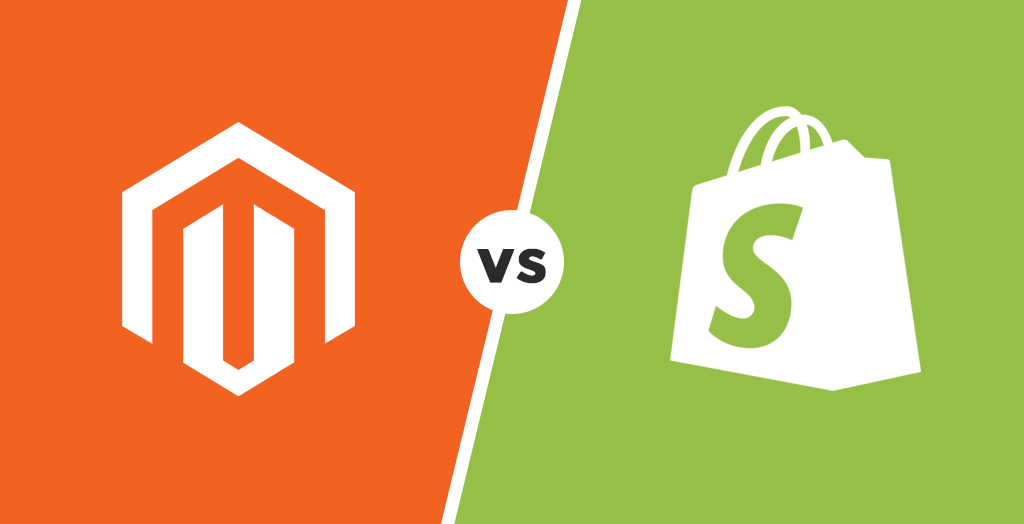When it comes to building an online store, two names often top the list: Magento and Shopify. Both platforms offer robust solutions for e-commerce, yet they cater to different needs and business sizes. If you’re looking to establish a strong online presence, choosing the right platform is crucial. Deciding between Magento and Shopify can be challenging, as each has its unique strengths and weaknesses.
To make an informed decision, it’s essential to understand the differences and how each platform can benefit your business. The right choice can significantly influence the success of your e-commerce site. In this blog, let’s uncover the comparison between both these alternatives and help you arrive at a conclusion whether you need to hire Magento developers or Shopify developers.
Key Comparisons Between Magento and Shopify
To help you determine which platform suits your needs best, we’ll compare Magento and Shopify across various aspects, including customization, ease of use, scalability, cost, and more. By the end of this blog, you’ll have a clearer understanding of which platform aligns with your business goals and requirements.
1. Customization and Flexibility
Magento is renowned for its extensive customization options. It’s an open-source platform that allows developers to modify the code to fit specific business needs. This flexibility is ideal for businesses with unique requirements or those looking to create a highly tailored user experience. However, this level of customization often requires hiring Magento developers who have the expertise to leverage Magento’s full potential.
On the other hand, Shopify is designed to be user-friendly with a more structured approach to customization. It offers a range of themes and apps that can enhance functionality without deep technical knowledge. This makes Shopify a great choice for small to medium-sized businesses that need a reliable e-commerce solution without the complexity of extensive customization.
2. Ease of Use
Shopify excels in ease of use, offering a straightforward setup process and an intuitive interface. It’s designed for users who may not have extensive technical skills, allowing business owners to manage their stores with minimal effort. Shopify also provides 24/7 customer support, ensuring that help is available whenever needed.
Magento, while powerful, has a steeper learning curve. The platform’s flexibility comes at the cost of complexity, requiring a good understanding of web development. This is why many businesses opt to hire Magento developers to handle the setup and maintenance of their Magento stores, ensuring everything runs smoothly.
3. Scalability
Scalability is a critical factor for growing businesses. Magento offers unmatched scalability, making it suitable for large enterprises with extensive product catalogs and high traffic volumes. The platform can handle complex requirements and offers advanced features for large-scale operations.
Shopify also scales well but is generally better suited for small to medium-sized businesses. While it can support larger stores, the platform’s limitations may become apparent as business needs growth. Shopify Plus, the enterprise version, offers more scalability but comes at a higher cost.
4. Cost Considerations
The cost of setting up and maintaining an e-commerce store varies significantly between Magento and Shopify. Magento’s open-source version is free to download, but businesses must consider hosting, security, and development costs. Hiring Magento developers can add to the expense, but this investment is often necessary to unlock Magento’s full capabilities.
Shopify operates on a subscription model with various pricing tiers, starting from basic plans to more expensive advanced options. While this can simplify budgeting, additional costs for apps and themes should be considered. The overall cost can be higher in the long run, especially for larger businesses that require more advanced features.
5. SEO and Marketing Features
Both Magento and Shopify offer robust SEO and marketing tools, but they approach these features differently. Magento provides extensive SEO capabilities, allowing for deep customization of URLs, meta tags, and more. This can give businesses an edge in search engine rankings, especially when managed by experienced Magento developers.
Shopify offers built-in SEO features that are easy to use but less customizable than Magento’s. It integrates well with social media and other marketing tools, making it easier for businesses to manage their marketing efforts. However, for highly specialized SEO needs, Magento may have the upper hand.
6. Payment Options
Magento supports a wide range of payment gateways, offering flexibility for businesses to choose the best payment options for their customers. This includes integration with popular payment processors as well as custom payment solutions.
Shopify also supports numerous payment gateways and includes its own payment solution, Shopify Payments. This can simplify the payment process for merchants but may come with additional fees. The choice of payment options can impact transaction costs and customer convenience, so it’s important to consider these factors.
7. Security
Security is paramount for e-commerce platforms. Magento offers robust security features and regular updates to address vulnerabilities. However, managing these security features requires technical expertise, making it essential to hire Magento developers who can ensure your store is secure.
Shopify takes care of security on behalf of its users, providing SSL certificates and PCI compliance out of the box. This can be a significant advantage for smaller businesses that do not have the resources to manage security internally.
8. Community and Support
Magento boasts a large community of developers and users who contribute to its extensive knowledge base and offer support through forums and online resources. This community-driven approach can be a valuable resource for businesses looking to troubleshoot issues or find new ways to enhance their stores.
Shopify, with its dedicated customer support team, offers a different kind of support experience. Users have access to 24/7 customer service, extensive documentation, and a range of tutorials. This can be particularly beneficial for those who prefer direct support from the platform provider.
9. Integration with Third-Party Tools
Integration capabilities are crucial for expanding the functionality of an e-commerce store. Magento’s open-source nature allows for seamless integration with a wide range of third-party tools and extensions. This flexibility can be leveraged to create a highly customized e-commerce environment tailored to specific business needs.
Shopify also offers a broad selection of apps and integrations through its App Store. While the range of available tools is extensive, the integration process is designed to be user-friendly, making it accessible even to those with limited technical knowledge.
10. Future-Proofing Your E-commerce Platform
Choosing a platform that can grow with your business is essential. Magento extensive customization options and scalability make it a future-proof choice for businesses planning significant growth. Hiring Magento developers can ensure that your platform evolves to meet changing needs.
Shopify’s ease of use and structured approach make it a solid choice for businesses looking for a reliable, hassle-free solution. While it may not offer the same level of customization as Magento, its consistent updates and improvements ensure that it remains a competitive option.
Concluding Thoughts
Deciding between Magento and Shopify depends largely on your business needs, technical expertise, and long-term goals. If you require extensive customization, scalability, and are willing to invest in technical expertise, hiring Magento developers may be a better choice.
On the other hand, if you prefer ease of use, lower upfront costs, and robust support, Shopify could be the ideal platform for your e-commerce store. Ultimately, the right choice will help you achieve your business objectives and provide a seamless shopping experience for your customers.







